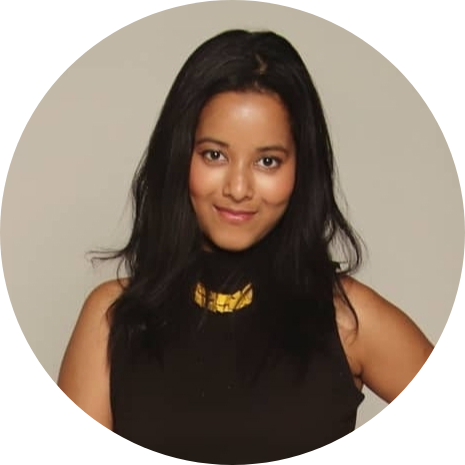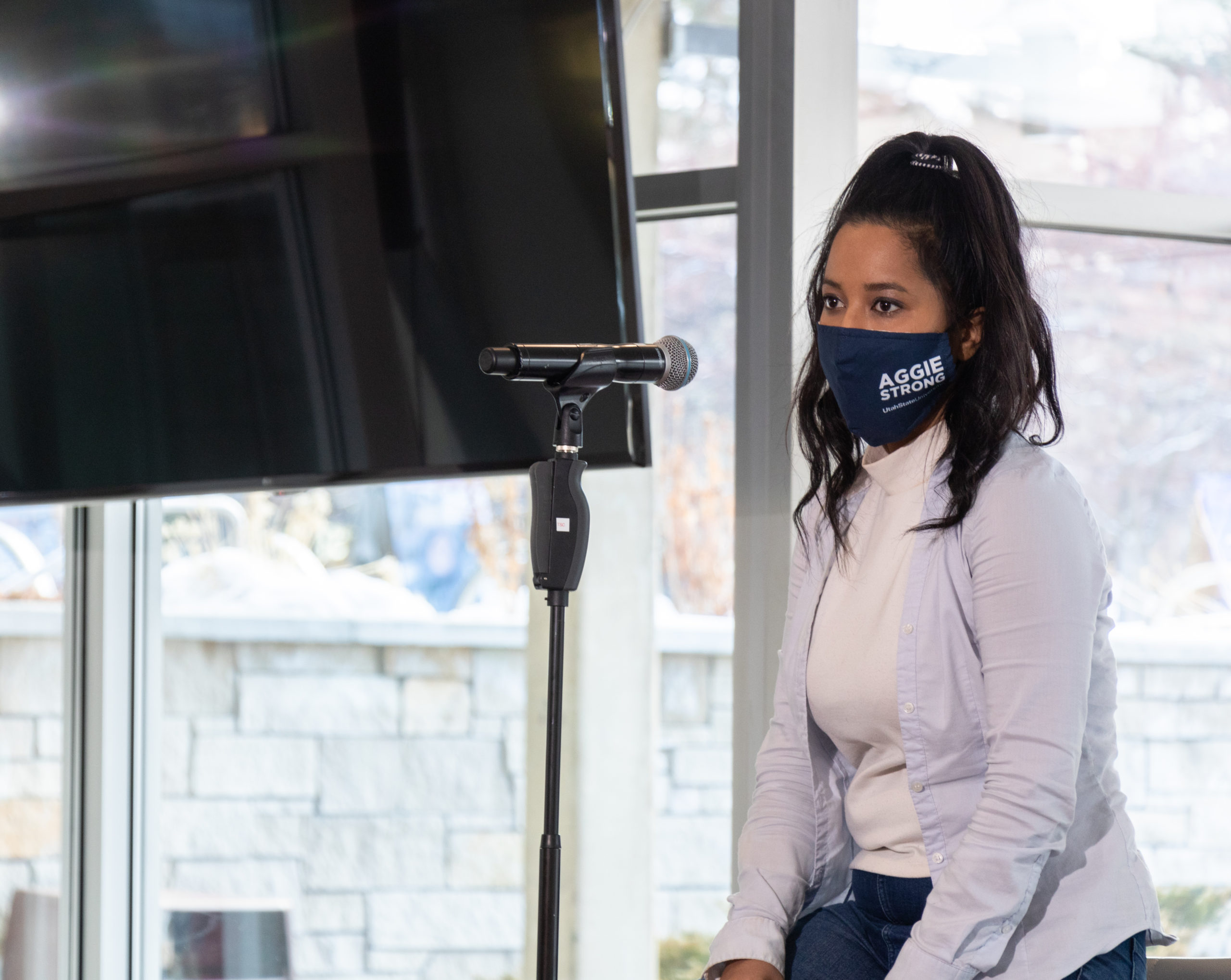Column: I fight for minority rights because I used to be what you are and have what you have. I know what we are missing.
There are 3,052 graduate students at Utah State University and the primary graduate voter turnout was 243 — an incredibly low 8.9%. University politics all over the world, including in Bangladesh, have always had strong correlations with social movements and national politics.
Watching American debates and listening to my classmates’ discussions make me viscerally see that there is absolutely no difference in the language and emotional appeals political arguments capitalize on. Our ethical compass directs our purpose in politics, effectively rendering morality a political construct in the public domain. Look beyond rhetoric, look beyond even listening to your heart, look at data, look at information. We are a research university and scientists, scholars and activists are producing research that improves the lives of all people with our time and our emotional labor; people who look like you and people who like us in a country that looks like you. My campaign is an interdisciplinary continuation of that purpose.
Like other minorities in America, I did not choose to be a minority, let alone overnight. In retrospect, it feels like blacking out at Zia International Airport and coming to at JFK Airport. While I was blacked out, someone surgically took away and added a bunch of identities and dynamics to my psychological comportment without consent. Now in my adulthood I am a minority, after growing up in a country where I had all sorts of privileges (that I didn’t even fully realize, like those of us with privileges usually don’t without deliberate attention) other than gender privilege. When my mother encouraged me to come to the U.S. she promised me a better life, a more comfortable life. I see what she meant. I can wear whatever I want (which she hates), I can (usually) be openly queer (which she doesn’t quite know), and I can (usually) fight for my rights with comparatively less urgent fear of my breath being violently taken from me. I don’t have to sit in hours of traffic, I’m not bitten by mosquitoes, I’m not bitten by misogyny as frequently and I can openly be a non-practising Muslim or atheist. Those are the important ones for me. For her it was higher chances of success, the highest possible educational status, further upward mobilization (although I already come from a socioeconomically privileged family), and finally all my dreams (artistic or otherwise) coming true (as long as it wasn’t misaligned with hers). Nowhere in that contract had I signed up for racism, xenophobia, Islamophobia, microaggressions, feral ignorance, dystopian othering and objectification, and a new brand of “intersectional misogyny” — oof. I never said I wanted to replace not being able to be an atheist with not being able to be Muslim. I never said I wanted to replace not being able to wear shorts with not being able to wear a hijab. That’s like being gifted with a box of anxiety to replace your box of depression, when you wanted a box of Hershey’s (or for the box to be burned).
An Indian student last year did not want the Bangladeshi Student Association to get any funding because they believed that Bangladeshis won’t follow through with any plan. The Bangladeshi Student Association, the International Student Council, Utah Humanities and I recently hosted a literary event for International Mother Language Day — a day born out of a language movement my people fought for in 1952 because we were capitally penalized for fighting for the right to speak our language — where we had renowned Indigenous, trans, and other marginalized literary figures read their original work. This is the biggest collaboration at the state level a USU student club has been able to host to date. I didn’t leave a history of an 18th century post-colonial pre-muktijuddho West Pakistani flavored oppression to come to a country where I experience a 2020 neoliberal, American version of oppression.
I have lived here and made a life for myself all by myself since I was a 20-year-old kid who did not know why they came here other than that’s what “high-achieving,” “English Medium” kids do. Now here I am and this is my life. Women like me who have experienced multicultural and multinational oppression and multicultural and multinational privileges know exactly what it means and feels like to be a majority and a minority. Most people and men in this world do not have access to that multi-texture life experience. We know how the world works and we know how to get things done.
This is my life now and I am going to fight for it and I am going to fight for all of you. We live in a world where I felt the need to archive some of my pictures on Instagram in this “free country” before the elections started. We live in a world where when my A-frame blew away, I wondered if someone vandalized it, where I ironically think twice both before saying “InshAllah” as well as before posting a picture of myself on social media where I happen to be drinking, where I don’t feel comfortable wearing sleeveless shirts since I stopped prescribing to pop standards of women’s body maintenance and presentation, and where I feel the need to “show” myself to institutional power and develop sympathy bias by making a human connection built on love, before being bold enough to be bold. Utah and Dhaka are not that different. Bangladesh and the U.S. aren’t that different. We just use different frameworks that are more culturally reflective of the respective culture’s sensibilities. People like me are called “Americanized,” as an ugly compliment by Americans, and as an ugly insult by Bangladeshis. It makes me sad that autonomy and authentic living are considered “Americanized” in this hyper-colonized world.
Through my plank projects, I am going to use my autonomy to make sure:
No American defines the word “lamp” for my Bangladeshi friend when he asks for a change of the light bulb in his room, which is an entirely valid request.
No one ever tells me my “English is very good.”
No one ever tells me international students are weird because they think I’m not one of them or “like them.”
No one ever uses the word immigrant condescendingly around me.
No one ever calls me an immigrant, without my consent. The difference between who’s an immigrant and who’s an expat is a highly Americanized concept defined by the color of your skin and what country you are from.
No one ever makes fun of an international student within earshot of me because they don’t realize I was an international student.
No one ever makes fun of queerness because they do not realize I am queer.
No one ever makes fun of someone’s accent. That person picked up a whole new language on top of everything else they are doing with their life in their adulthood. How many languages do you speak and how is your Bengali language accent? Everyone has an accent in every language in the world. There is nothing extra nice or special about a Western accent.
No one ever makes fun of poverty because you do not know that my husband is from a severely socioeconomically disadvantaged background, or because you do not realize I do not have family support and am constantly financially struggling, unlike most friends in my life all over the world. If you have a loving and accepting family who can possibly pay your fees and your bills, once in a while if you ask and are not at risk of ending up homeless, you are not poor. You are rich and broke.
No one ever makes fun of other races in front of me because they think they can say whatever they want to to someone from their own community or race. There were three races involved with George Floyd’s death — White, Asian, and South Asian. I am watching all of you and holding all of you as accountable as I hold myself every day.
No one deprioritizes mental health when I have seen the extreme consequences of lack of mental healthcare access in every single person I have ever loved in my entire life since I was born.
No one assumes I must be running for the Diversity Vice President if I am running in the elections. That’s like a standup comedy version of assuming I must be from India if I am Brown (or worse asking how far from the capital of India Bangladesh is — assuming Bangladesh is a city in India).
No one holds “acculturation” workshops for my people without holding cultural competency workshops for their employees.
No one forgets accountability. Hold me accountable. If I get this position, I will get $6,000 in scholarship for the year and a small stipend of $500. They come from our (your) student fees. Think of that as your income tax money and think of USU as a microcosm of the nation; both are institutions. Make sure we democratically and communally decide how that $500 should be spent, and on what administrative projects and contributions to USU welfare, for which I deserve $6,000, my service hours should focus on.
I prefer to thrive not just survive, and I prefer everyone to thrive with me. Everyone, not just a majority group, not just a minority group someone identifies with, everyone.
Call me a neoclassical-Keynesian if you will but I prefer communal and overall growth over selective, competitive growth. That is why I am running for Graduate Senator. I plan to work in public policy after my Ph.D. I will change the things that I see harm people and communities. Perhaps Jerusha Sanjeevi could have done that too if she had survived Utah and the U.S. past her first year here, and wasn’t harmed to the point of suicide.
*Photo by Bailey Rigby.
 Niyonta Chowdhury-Magana is a queer, Muslim-Pantheist artist, activist, and Psychology PhD student at USU. She is from Dhaka, and has lived in New York, California, Bristol, Tokyo, and several other places that have all proved to be formative experiences for her. She has a cat called Kit Cat and she always wants you to know it’s short for Kitten Cat and has nothing to do with the candy Kit Kat.
Niyonta Chowdhury-Magana is a queer, Muslim-Pantheist artist, activist, and Psychology PhD student at USU. She is from Dhaka, and has lived in New York, California, Bristol, Tokyo, and several other places that have all proved to be formative experiences for her. She has a cat called Kit Cat and she always wants you to know it’s short for Kitten Cat and has nothing to do with the candy Kit Kat.
Instagram: @lettermilk, @entercenterpage
Twitter: @niyonta

